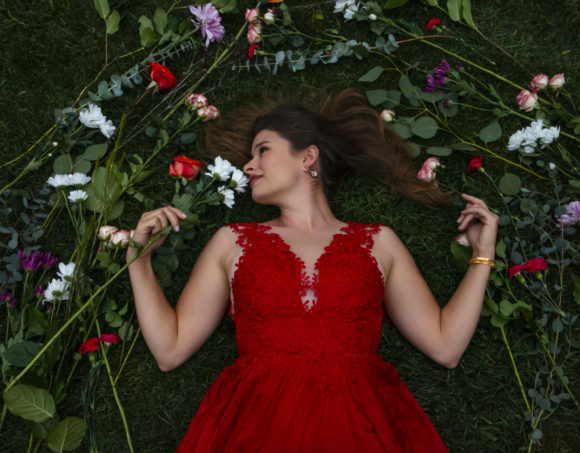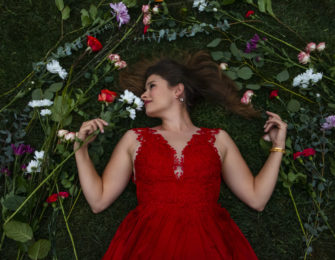Casa Romantica’s groundbreaking new work is a completely original concept opera. Opera Through The Seasons, set against the backdrop of our unique historic property and performed promenade-style, features leading soloists from LA Opera, including soprano, Liv Redpath (returning to Casa Romantica after a sold-out 2018 solo performance) and soprano Andrea Zomorodian (who can be heard on major motion picture soundtracks including Star Wars, Frozen 2, and Mulan). Learn more about their opera style, careers, and what excites them about performing at Casa Romantica this Spring!
Why and how did you get into Opera?
LR: Music was a part of my experience from a very young age with piano and choir, but opera entered my view around age twelve when my mother suggested I try a new group forming at the MN Opera. This program, Project Opera, aimed at helping kids to discover the joys of classical voice through a blend of opera choruses, more traditional choral works, and opera scenes and productions that featured them. Though first reluctant, I quickly caught the bug so completely that at the age of fourteen when I walked off stage from my first role — Gretel, in Hansel and Gretel — I realized that pursuing opera as a career seemed like the thing for me.
AZ: After starting with flute and musical theater in grade school, my parents put me in classical voice lessons. This progressed from learning art songs to opera arias! My parents started taking me to the opera and I was just enamored. Seattle Opera does an incredible Wagner “Ring Cycle” every four years, and I’ll never forget how blown away I was by the whole experience. My first experience outside of my own voice lessons and attending the opera was when I signed up for a summer opera program called “Bel Canto Northwest” held at Portland State University when I was 16. I was cast as one of the spirits in The Magic Flute! I learned so much that summer and decided I wanted to pursue a degree in “opera.” So, I went to USC for “opera” but the degree you actually are pursuing as an undergraduate is called “Vocal Arts” which I think is the perfect description of my career now. While I do sing opera, I also sing a lot of concert music, early music, chamber music, choral music, and studio singing for film & television.
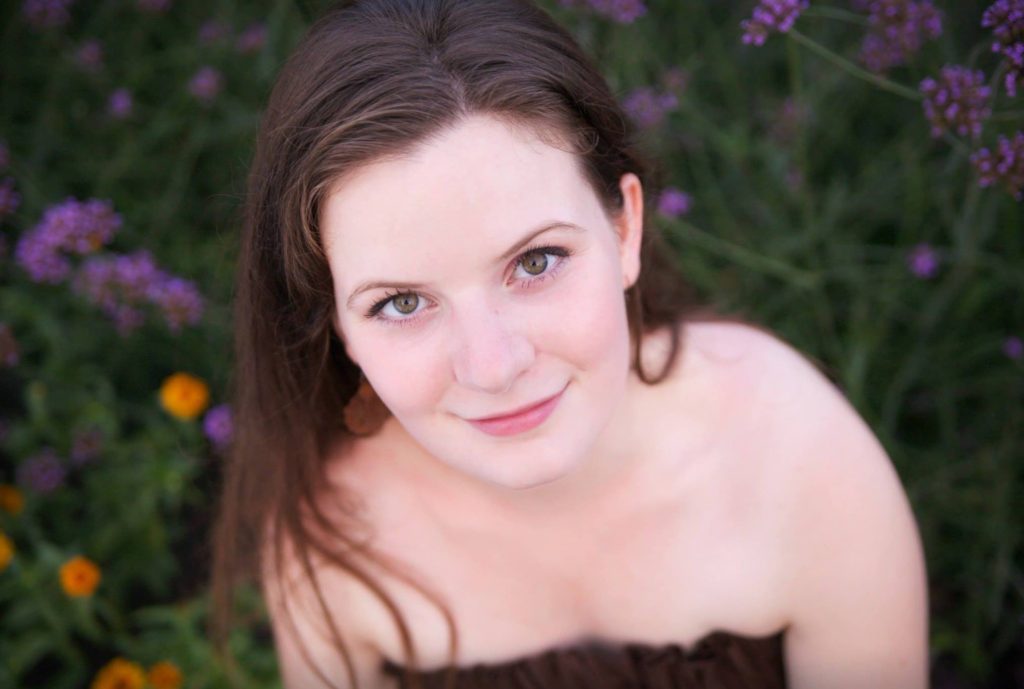
What type of opera voice do you have and how does that differ from other types?
LR: I started out as a very sparkly high soprano, which we call a coloratura these days. More apt to describe me now would be a lyric coloratura or a soprano leggiero, which translates to light soprano. I tend to sing a wide range of repertoire that spans from very rangey and virtuosic pieces that can last up to 15 minutes, and also much smaller delicate pieces, which is more of what you’ll get to hear in my Casa Romantica selections!
AZ: I think when most people hear the term opera singer, they think of a soprano with a massive voice, dressed like a Viking with horns on her head, singing some awesome Wagner. I’m not that kind of soprano! While I do sing opera (I would be considered a “soubrette” or a light lyric soprano), I don’t necessarily think of myself as an opera singer. I have a much lighter instrument and sing a lot more concert music, light opera, early music, and chamber music. I love singing Handel, Bach, Mozart, Haydn, etc.
What are some highlights of your career?
LR: During this time in particular, I’ve had time to reflect on how lucky I have been in my young life to reach a few bucket list goals quite early. One certainly has to be my house and role debut at Santa Fe Opera a few years ago as Zerbinetta in Ariadne auf Naxos. Other red letter events would be singing Gretel opposite two of my heroes, Sasha Cooke and Susan Graham in Hansel and Gretel at LA Opera, my European debut in Les Huguenots in a brilliant David Alden production at Deutsche Oper Berlin, a recent performance of Mahler’s 4th Symphony recorded with Mo. Dudamel and the LA Phil at the Hollywood Bowl, and also jumping into performances of Haydn’s Lord Nelson Mass and Beethoven’s Mass in C Major with them. I was really looking forward to my Metropolitan Opera and NY Philharmonic debuts this year, as well as joining the LA Phil to open their season and the season at Carnegie Hall.
AZ: I’ve been so fortunate to have already had so many extraordinary experiences. Top of this list is opening the world famous Salzburg Festival (2019) with the LA Master Chorale’s production of “Lagrime di San Pietro” staged by Peter Sellars. Cast back in 2016, we’ve now toured all over the world since 2018 and will hopefully pick up again as soon as it’s safe to do so. I’ll never forget performing in a solo quartet under Gustavo Dudamel & the LA Phil on my birthday in 2018! Some other “pinch me” moments have been in the studio singing world – you can hear me on the Outlander Season 5 theme song, on soundtracks for Frozen 2, Mulan, Star Wars (Ep 8 & 9), and many other films. I was honored to be a soloist for HBO’s Game of Thrones Live Concert Experience and on League of Legends. Last year, I traveled to Gstaad, Switzerland for a thrilling collaboration with Doug Aitken for his installation Mirage performing Aitken’s Song Mirror in the midst of the Swiss Alps.
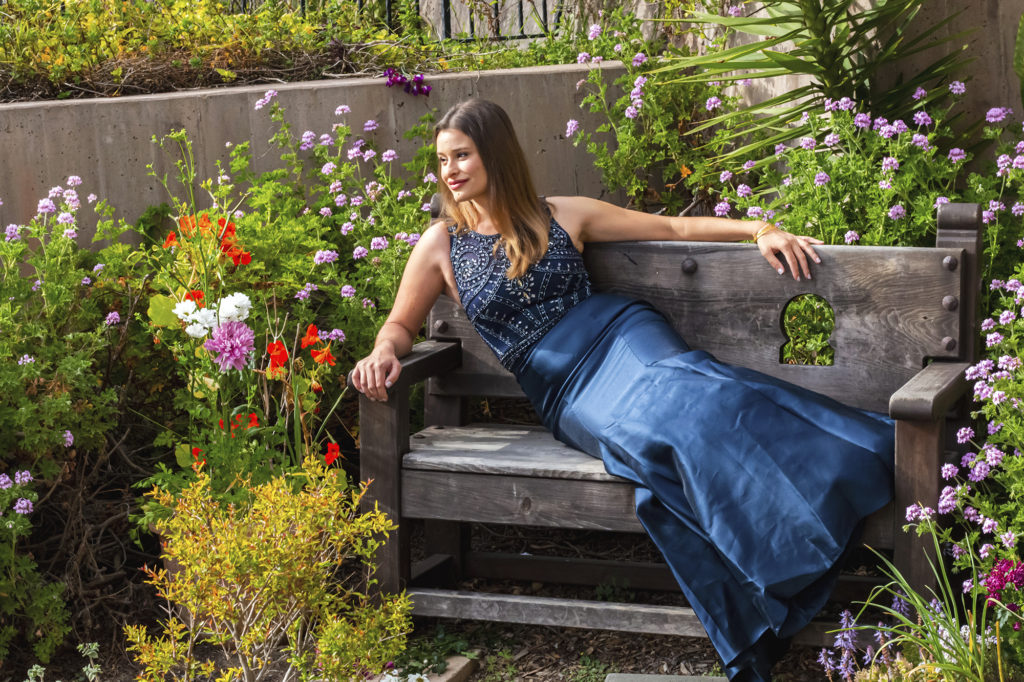
Who are your musical heroes and influences?
LR: Some of my favorite vocal artists (in no particular order) are Lorraine Hunt Lieberson, Joni Mitchell, Rita Streich, Barbara Hannigan, Joan Sutherland, Fiona Apple, Dietrich Fischer-Dieskau, and Anna Moffo.
AZ: I adore Arleen Auger’s voice and what she was able to accomplish in her career in the short time she had on this earth. I am obsessed with the way Masaaki Suzuki does Bach, and love getting lost in listening to cantata after cantata. When I was younger, I listened to a lot of Dawn Upshaw and Audra McDonald. They both have such clear instruments that are so expressive, and something drew me to them early on. I listen to so many different types of music, some other favorites include: Carolyn Sampson, Erin Morley, Joyce DiDonato, Gustavo Dudamel, Sara Gazarek, & LeAnn Rimes (just to name a few!).
Favorite Opera or favorite Opera Character?
LR: Tough one…some would be Der Rosenkavalier, L’elisir d’amore, Giulio Cesare, Le nozze di Figaro, and Les mamelles de Tirésias
AZ: Tosca, Le nozze di Figaro, Der Fliegende Holländer, Nixon in China, Carmen
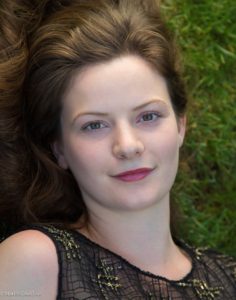
What is something that people get wrong about Opera?
LR: It’s easy to lump opera into a mono category or identity, but it really is like any other literature: it has myriad qualities, enough that there is something for everyone to enjoy and appreciate. Of the operas I just listed above, we have an expansive Viennese dromedy that balances lots of hijinx with poignancy and strength, an unabashedly beautiful, Italian romcom, a decadently royal, sexy, Baroque opera, a subversive, charming, witty story about class relationships and the truths of people’s humanity and relationships, and a piece that adapted the play for which Appolinaire coined the term surrealism. There is something for EVERYONE (and those are just my favorites)!
AZ: It’s so much more than the singing. While the singing is often epic, I’m always lost somewhere in the orchestral score. It’s such a complex artform that incorporates orchestral music, vocal music, theater, drama, comedy, history, literature. When you go to the opera, if one aspect of it isn’t your thing, there’s a lot of other spectacle to enjoy. Because it encompasses all these artistic mediums, it really is what the Germans call Gesamtkunstwerk (the complete artwork).
How do you feel about site-specific Opera as opposed to traditionally stage Opera?
LR: I think it can be super exciting and give a fresh perspective for both the audience and the performers.
AZ: I adored performing Pergolesi’s “La Serva Padrona” here at Casa Romantica last season, and now point to it as the perfect site-specific opera experience. I thought it worked incredibly well and was immersive and effective for both the audience and the artists. It feeds perfectly into that German idea of Gesamtkunstwerk (total artwork). Opera is a feast for the senses! Setting it outside of a typical opera house – where the beauty of the space adds yet another artistic component – makes Casa Romantica the perfect venue to take it all in.
What seasons are you singing for Casa Romantica’s Opera Through the Seasons and how are you preparing for the performance?
LR: Spring and Winter
AZ: Autumn and Summer – working with the incredible harpist Marcia Dickstein on some gorgeous repertoire that we can’t wait to share with you.
Any advice for young singers interested in pursuing Opera?
AZ: I was always told that a singer’s voice doesn’t truly develop (specifically operatically) until their 30’s. So what I tell young singers is to chase what they like and what they’re good at. This has served me well and has enabled me to build a rich and robust career founded on excellent musicianship, ample and extensive experience in professional music – and now my life and career include opera, but it’s not restricted to just that one niche. I’m so happy and fulfilled by the many ways I get to use my voice professionally.
What excites you the most about performing at Casa Romantica again?
LR: The warmth of the audience and the chance to curate another concert to fit this beautiful space.
AZ: The opportunity to perform amidst the inspiring beauty of this place. My performance will take place outside in the fresh air, with wafts of floral fragrance, and the smell of the ocean!
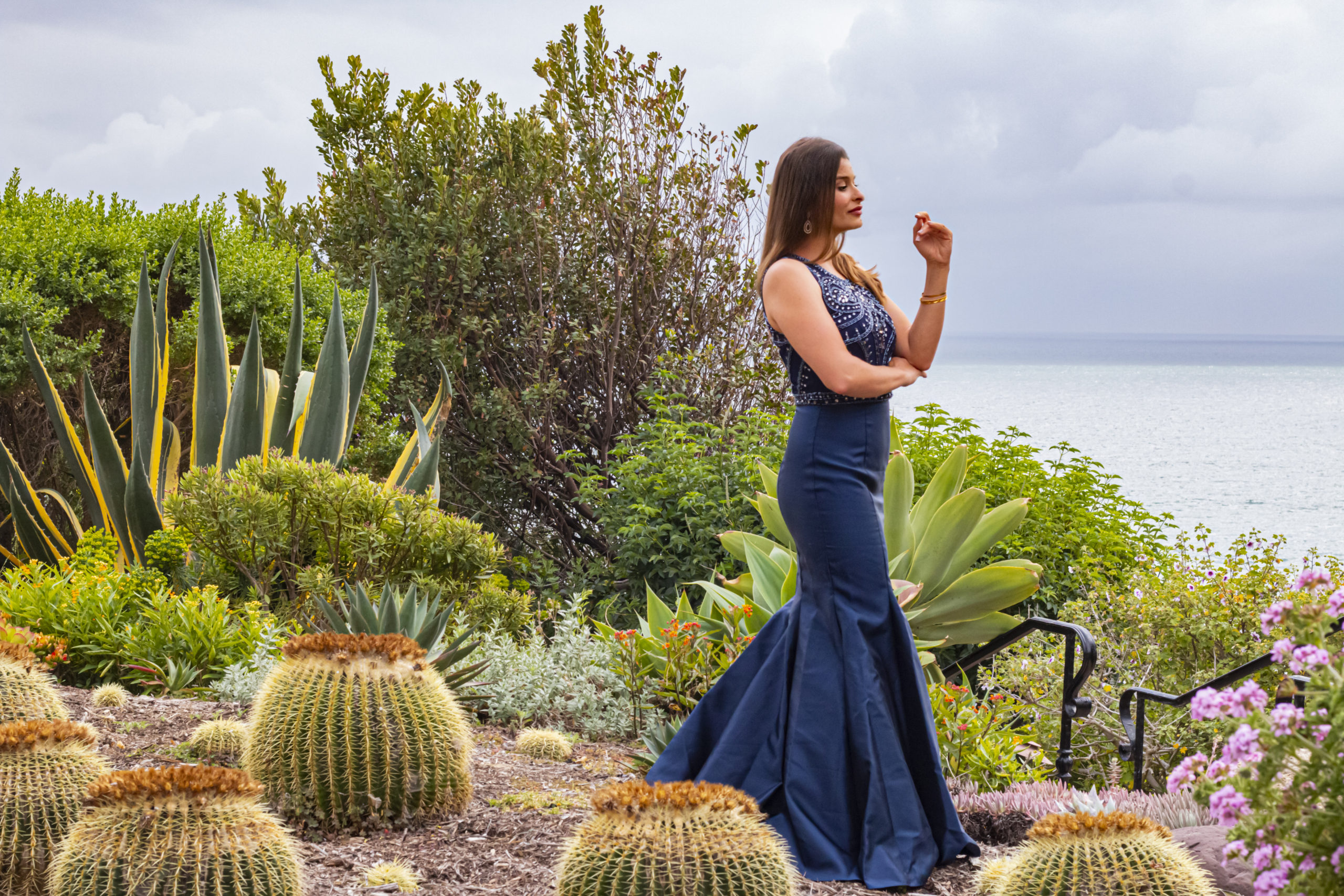

 Blog
Blog  Casa Captivating
Casa Captivating  The Stars of Opera through the Seasons talk about their upcoming performance at Casa Romantica
The Stars of Opera through the Seasons talk about their upcoming performance at Casa Romantica
 Blog
Blog
 The Stars of Opera through the Seasons talk about their upcoming performance at Casa Romantica
The Stars of Opera through the Seasons talk about their upcoming performance at Casa Romantica
